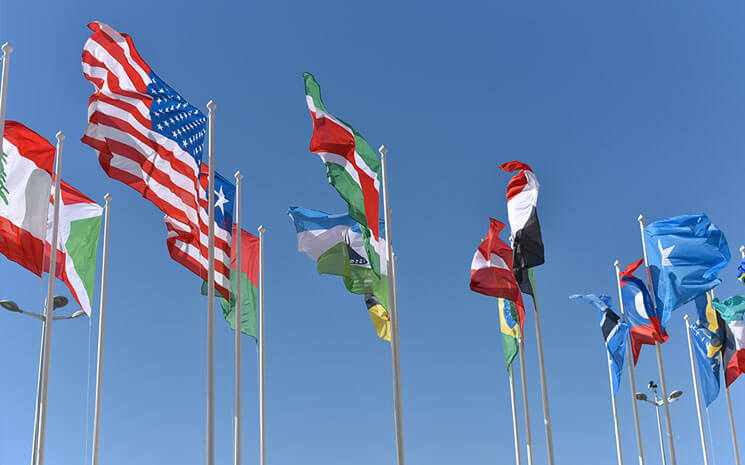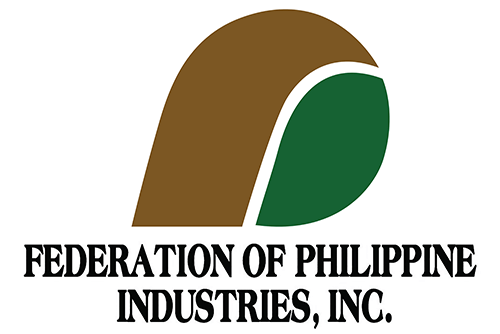How Can We Help?
If you need any help, please feel free to contact us.
8722-3409 / 8722-9737
fpi@fpi.ph

Industry Policy
The Federation of Philippine Industries (FPI) represents a broad coalition of manufacturers and producers in the Philippines. As such, its advocacy for an “International Trade Policy” would be driven by a core set of objectives aimed at fostering a favorable environment for the growth and competitiveness of its member industries within the global trading system. Here are the key objectives:
1. Enhanced Market Access for Philippine Industries:
- Securing favorable terms in trade agreements: The FPI would advocate for international trade policies that reduce or eliminate tariffs and non-tariff barriers (NTBs) in key export markets for Philippine-made goods. This includes active participation in negotiations for Free Trade Agreements (FTAs), Regional Comprehensive Economic Partnership (RCEP), and other bilateral or multilateral trade deals.
- Addressing specific trade barriers: This involves identifying and lobbying against specific obstacles hindering Philippine exports in certain countries, such as discriminatory regulations, unfair customs procedures, and sanitary and phytosanitary (SPS) measures that are not scientifically justified.
- Promoting Philippine products globally: Advocating for government support in trade promotion activities, such as participation in international trade fairs, organizing trade missions, and providing market intelligence to FPI members.
2. Fair Trade Practices and a Level Playing Field:
- Combating unfair trade practices: A major objective would be to advocate for policies that address unfair competition from imports, such as dumping (selling goods below cost in the export market) and the subsidization of foreign industries by their governments. This includes pushing for effective anti-dumping and countervailing duty mechanisms.
- Ensuring compliance with standards: Advocating for international recognition and harmonization of Philippine product standards to reduce trade friction. Simultaneously, pushing for stricter enforcement against the importation of substandard and potentially harmful goods that unfairly compete with locally manufactured products and endanger consumers.
- Protecting intellectual property rights (IPR): Promoting strong IPR protection both domestically and internationally to safeguard the innovations and brands of Philippine industries.
3. Policy Coherence and Alignment:
- Ensuring domestic policies support international trade objectives: The FPI would advocate for the alignment of domestic industrial policies, investment policies, and other relevant regulations with the goals of international trade policy. This ensures a consistent and supportive environment for export-oriented industries.
- Streamlining trade procedures: Pushing for the simplification and digitalization of customs procedures, import/export documentation, and other trade-related processes to reduce costs and improve efficiency for businesses.1
- Promoting a predictable and transparent trade regime: Advocating for clear, stable, and transparent trade rules and regulations to reduce uncertainty and encourage long-term investment in export-oriented sectors.
4. Safeguarding Domestic Industries:
- Strategic use of trade remedies: While advocating for open markets, the FPI would also push for the judicious use of safeguard measures (temporary restrictions on imports) to protect domestic industries facing serious injury from a surge in imports.
- Promoting local content and value addition: Advocating for policies that encourage the use of local raw materials and components in manufacturing for export, thereby increasing domestic value addition and job creation.
- Addressing import surges of sensitive products: For certain strategic or vulnerable industries, the FPI might advocate for specific measures to manage import competition and ensure their long-term viability.
5. Supporting Micro, Small, and Medium Enterprises (MSMEs):
- Facilitating MSME participation in international trade: Advocating for programs and policies that provide technical assistance, financing, and market access support specifically tailored to the needs of MSMEs wanting to engage in exporting.
- Simplifying trade procedures for MSMEs: Recognizing the unique challenges faced by smaller businesses, the FPI would push for simplified export processes and reduced regulatory burdens for MSMEs.
6. Achievements:
In 1990 Multi-Sectoral groups composed of local manufacturers questioned before the Supreme Court Executive Order No. 413 or the mindless trade liberation program of the government.
- Sensing that the EO is constitutionally flawed, as the President is only allowed under the law to raise the tariff on a selective basis but not across the board when congress is in recess, Malacañang withdrew E.O. 413 and left it to congress to study the tariffs. This also paved the way for the formal organization of the Federation of Philippine Industries (FPI) in 1991.
FPI actively participated in the public hearings on the safeguard measures bill and implementing rules and regulations
- On July 19, 2000 Republic Act 8800 or the Safeguard Measures Act was signed into law. The implementing Rules and Regulations were published on October 4, 2000 and took effect on October 11, 2000.
FPI pushed for Private Sector Participation in International Negotiation
- The government granted FPI’s request for increased participation by the private sector in international negotiations not only in the area of trade but also in investments, finance, standards, environment and other matters which vitally affect business and industry on an advisor/observer status.
FPI strongly pushed for flexibility of tariff reduction on the Non-Agricultural products.
- The government granted FPI’s request to allow the local industry to have as much flexibility as possible by limiting the rate of reduction in the tariffs of non-agricultural products.
In essence, the FPI’s advocacy for international trade policy is driven by the overarching goal of creating a global trading environment that is conducive to the sustainable growth, competitiveness, and job creation within Philippine industries. This involves actively seeking market opportunities, ensuring fair competition, promoting policy coherence, safeguarding domestic interests where necessary, and empowering Micro, Small, and Medium Enterprises (MSMEs) to participate in international trade.



